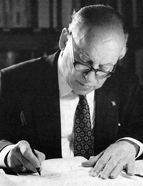

In view of the regime then in force, in which the Institution and the President, its most visible face, were targeted, Veríssimo Serrão clarified his political position, stating that he had never been a monarchist or a Salazarist, nor had he been attracted by the idea of restoring the monarchy, “as I was committed to liberal republicanism, which I held until the mid-1960s, when I became convinced that without strong executives there can be no governance in the world that emerged from the Second World War” (Idem, p. 84). In the second part of this statement, he clearly draws a chronological line in his political choice. He distances himself from the Salazar government, from which he suffered the consequences, which were referred to in competitions at the Faculdade de Letras [School of Arts and Humanities], having already experienced persecution by the political police as a student in Coimbra for his membership of the Movimento de Unidade Democrática Juvenil (MUDJ) (Vítor Serrão, “Historiador incontornável”). In the aforementioned statement, he clearly refers to the government of Marcelo Caetano, in whose “spring” of regime renewal he believed, in addition to having established a personal friendship with him and devoted unlimited loyalty after 25 April. This stance, while on the one hand showing his staunch support for the former President of the Council, on the other hand, in his “intellectual testament”, written in 2000, presents his fundamental choices with other nuances: “due to my individualistic upbringing, I never joined any parties or factions, limiting myself to debating ideas that are most in line with my way of being. What has always inspired me has been to serve culture as a teacher and researcher” (Meio século... p. 18). And indeed, this is the facet that prevails when reading his historiographical work, which is rigorous in its sources and devoid of interpretations other than the vast documentation on which it is based. Despite his adherence to Marcelism, a dispassionate and objective reading of his vast work does not allow us to say that Joaquim Veríssimo Serrão used his writing of history and his teaching as a historian to defend the Estado Novo.
This work is financed by national funds through FCT - Foundation for Science and Technology, I.P, in the scope of the projects UIDB/04311/2020 and UIDP/04311/2020.
